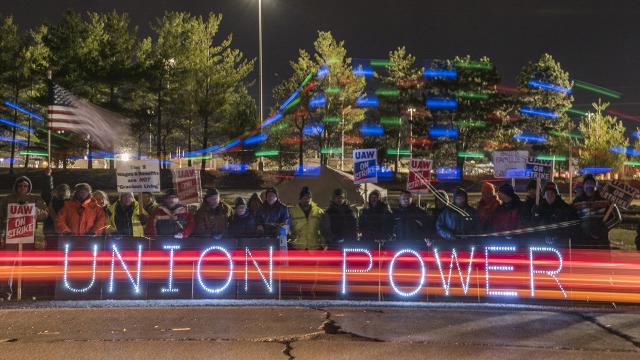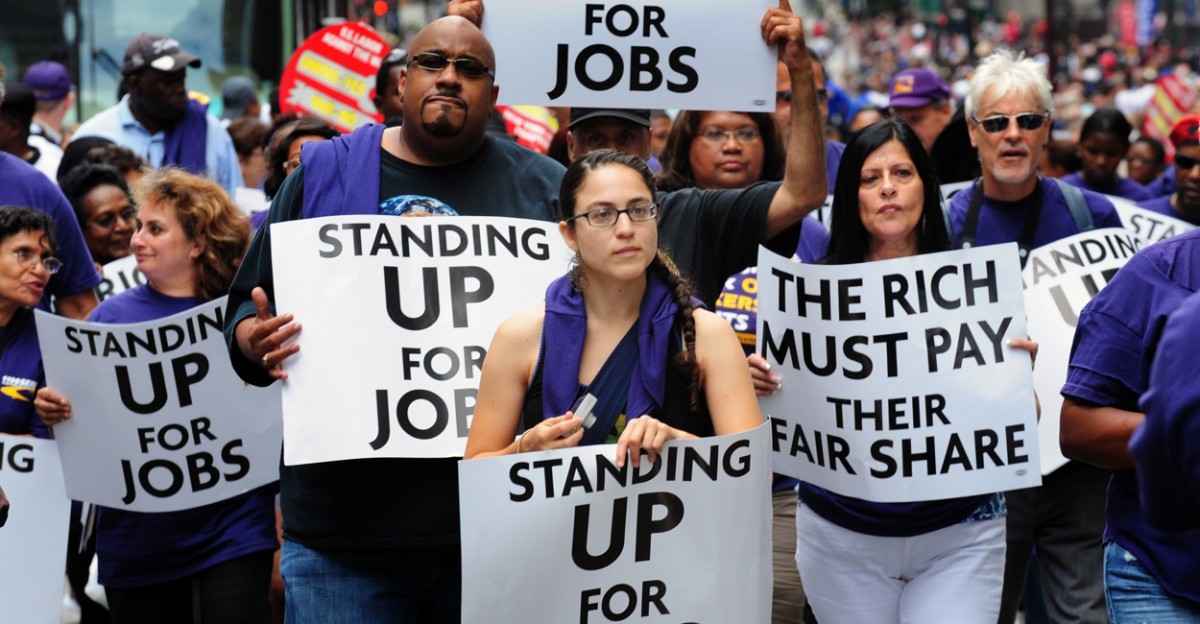
Income inequality has become one of the major discussion topics in modern politics, sparked in part by the 2011 Occupy movement. It’s not hard to see why.
America has one of the biggest income gaps in the world. The top 1 percent of earners take home more than 25 percent of the nation’s income and control 40 percent of the nation’s wealth overall. At the same time, wages have stagnated and the middle class has all but disappeared. The high level of income inequality, with its wide reaching consequences, can be attributed to a number of factors including technology, globalization and tax cuts to the most wealthy Americans. What is rarely discussed, however, is the fact that widening income inequality is closely connected to the rise and fall of unionization in the United States.
Today’s economic climate mirrors the one that existed in the late 1920s, according to research by Berkeley economist Emmanuel Saez. Just under a century ago, the bottom 90 percent of Americans earned 50.7 percent of all pre-tax income, while the top 1 percent earned 23.9 percent. But in 1935, the passage of the National Labor Relations Act let to a significant increase in unionization as well as a massive decrease in wage inequality, helping citizens climb the economic ladder into the middle and upper classes.
As the left leaning Economic Policy Institute (EPI) reported, “the countervailing power of labor unions [during this time] gave them the ability to raise wages and working standards for members and non-members alike.” But that relative equality and upward mobility began to change in the late 1970s and early 1980s, and by 2012, the bottom 90 percent of workers accounted for 49.6 percent of all pre-tax income, while the top 1 percent held 22.5 percent.
At the same time the percentage of worker participation in unions dropped significantly. Today, only 10 percent of workers belong to a union, compared to 34 percent in 1979. “That, in turn, has led to some pretty compelling changes in the way workers are compensated, and the power they have to influence their earnings,” wrote Alana Semuels in The Atlantic.
As EPI’s research notes, the presence of unions significantly affects the wages of non-union workers, especially blue collar workers or those without a college degree. The authors of that study estimate that if union membership density had remained at the same levels that existed in 1979, non-union workers would be paid upwards of 9 percent more than what they currently make on average. This could be a difference of up to $3,172 per year.
The reason is simple: When unions are strong, they advocate for better rules and regulations for their members and, in turn, all laborers benefit.
“In the past, non-union employers would often be forced to keep wages on par with wages at unionized plants,” Semuels continued. “If they didn’t, they’d lose workers to unionized jobs. Employers also feared that if they didn’t keep wages and benefits high, workers would decide to unionize, which would give companies less control in setting pay and benefits.”
Today, however, there has been a massive push for a labor revival. A recent Gallup poll suggests that labor unions have an approval rating of 61 percent, the highest percentage since 2003. This is no doubt due in part to the recent uptick in union membership and strikes throughout the country.
“Over the past several [years], a new kind of labor activism has emerged from some of America’s poorest-paying and least-unionized industries,” reporter Ned Resnikoff wrote for MSNBC. In 2013, fast food workers stood near the forefront of the movement, waging a nationwide strike campaign. This year, teacher strikes in West Virginia, Oklahoma, Arizona and elsewhere have made national headlines, spreading to cities and states throughout the country.
Most recently, Missouri voters showed overwhelming support for organized labor, overriding a legislative effort to curb union power. With the steady decline of the middle class and the continual rise of income inequality, more people may see unions as a way for Americans to advance economically and reclaim their power as both workers and consumers.















